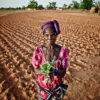Liz Alden Wily: Interlaken – a watershed?
Helping rural communities in agrarian economies to secure their community lands as rightfully their property is not new. Individuals and agencies have been working on this since the 1970s, usually in isolation and against the mainstream.

By the 1980s successes began to be notched up. Most were in the emerging Indigenous Peoples’ sector, affecting small numbers of customary landholders in the third world, or minorities in industrial economies (e.g. Maoris and Aborigines). By the 1990s, the dispossessory effects of donor-backed titling reforms also began to be challenged, with more wide-ranging effect across rural populations. Was there justice or common sense, they were asked, in continuing to treat millions of poor land users as little more than squatters on their own land, for lack of a state-issued title deed? And was pumping yet more millions into extinguishing rather than building upon those community-based regimes the right remedy?
Some took up the challenge, amending laws to acknowledge that, yes, most of the land was already owned after all (and always had been), under traditional tenures. Tanzania (like Mexico decades earlier) led the way in grasping attendant governance links: this was not just about rights but also about who defines and regulates rights. In 1999, 69% of the country was turned over to village-elected councils to govern in accordance with community, not state, determined norms. As states began to tumble out of dictatorships, one-party states and civil wars, securing community lands became an increasingly indispensable threat of new era reforms. Everywhere, this proves to be less about the tenure security of untitled farmlands than of the millions of hectares of off-farm rangelands and forests which communities own communally by tradition. Who is the true owner of these lands: governments, or their people?
The ‘global land rush’ since the mid 2000s has given more grist to the issue.[1] International actors, including donors who have invested billions over the last half-century in programmes designed, effectively, to extinguish community-derived land rights and governance regimes, are rethinking strategies. Big business and even speculators now waver a little more about acquiring lands and resources which communities claim are rightfully theirs, notwithstanding contrary assurances of governments. Some agrarian governments themselves are feeling the pinch of sustaining colonial norms of denial of customary-based ownership. The Conference in Interlaken is, therefore, occurring at a time of a potential tipping point.
Going global means empowering millions not shouting on their behalf
‘Going global’ in the sense of bringing the issues to global consciousness (and conscience) is relatively straightforward, such as through getting community lands security into G8, G20, G7+, post-2015 Millennium Goals, and other well-funded agenda.

It is a bigger challenge to achieve change in ways that empower rather than disempower the very millions who are affected. It is all too easy for the issue to become the latest bandwagon, and for agendas to be co-opted and deformed by organizations as they chase the money.
Nor, while gains have been made, is the road itself terribly solid. While gains have been made, in most affected countries millions are still deprived of legal protection of their lands, and as pressure mounts, governments dig in their heels or even renege on new legal norms, usually with the backing of impressively expanding transnational and local elites wanting large tracts of lands and resources for themselves, along with split personality international agencies confused about how to grow agricultural economies at the same time as securing majority rights.
Reaching into a deeper debate is essential
Well-embedded legal denial of customary rights is not easy to dislodge. Feudal, colonial and many a post-colonial state have been built on the back of denial that rural populations actually own the lands they live and depend upon—or should be so acknowledged in a 21st century world. Structuring state laws to legitimize this denial is as old as capitalism itself, legitimized dispossession providing the cheapest, fastest and easiest platform to accumulation of wealth and power—for the few. It takes a lot for a government to put an end to this plunder, especially when leading politicians and civil servants are at the deep end of the beneficiary pool. The challenges are therefore major, complex, and likely to be only chipped away at, until significant new practice gathers enough momentum for a new tipping point.
The good news is that with growing mass inter-connectedness and education, the mass rural poor are beginning to join the dots between poverty and denial of their land rights, between the paradox of rapidly rising GDPs alongside rapidly rising rates of poverty and hunger – and land takings. It is this emerging disaffection that gatherings like the one in Interlaken need to harness.This is unlikely to occur without political empowerment of those affected. For all the money, west-centered clout, expertise, and advocacy in the world cannot relieve millions of rural poor of their presumed landlessness in sustainable ways without the power of affected populations firmly driving the change, and being critically vigilant of the gains.
Time to get political
Development actors are notoriously shy about making issues political beyond the human rights ledge (as if social change, as capitalist transformation is so coyly named, were not the ultimate political act. In this supposedly democratising world in which multi-partyism is so strongly advocated as the peaceful path, there should be no choice. The day when national parties are formed around and elected upon the basis of assuring rural populations of their land rights—much as Greens have done for the environment—may be the day when we know we are making progress.
Liz Alden Wily is an independent scholar and activist who has worked on community land issues for some decades with communities, governments, donors, non-government organizations, and think tanks. She is a Fellow of the Rights and Resources Initiative.


